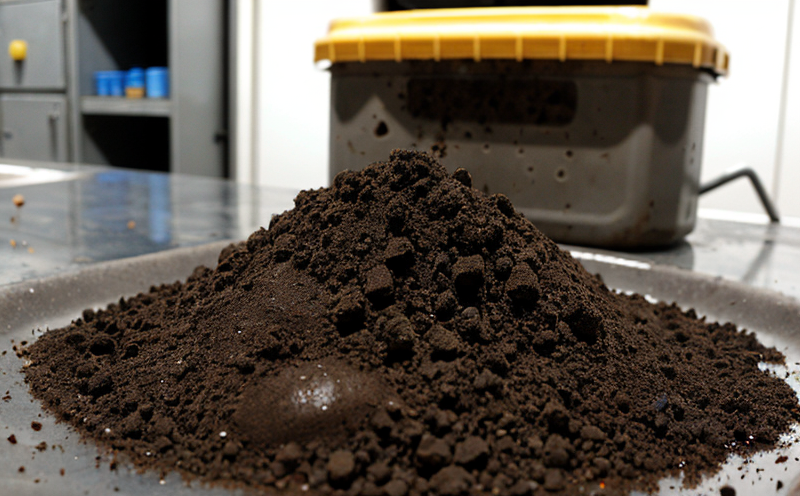Food Contact Material Residue Profiling
Food contact materials (FCMs) are a broad category of packaging and containers that come into direct or indirect contact with food. Ensuring that these materials do not release harmful residues, especially in the presence of food products, is critical for public health and safety. This service focuses on providing comprehensive residue profiling for FCMs to ensure they meet regulatory requirements and industry standards.
The process involves analyzing various types of FCMs such as plastics, metals, paperboard, and adhesives used in packaging. Our laboratory employs advanced analytical techniques including ICP-MS (Inductively Coupled Plasma Mass Spectrometry), GC-MS (Gas Chromatography-Mass Spectrometry), and HPLC (High Performance Liquid Chromatography) to detect trace levels of potential contaminants.
The testing is conducted under strict quality control measures, ensuring that the results are accurate, reliable, and repeatable. Compliance with international standards such as ISO 21579:2018 for plastics used in food contact applications further strengthens our service offering. The acceptance criteria for these tests are based on regulatory limits set by bodies like FDA (Food and Drug Administration) and EU regulations.
Our team of chemists and technicians ensures that each sample is prepared meticulously, following standardized protocols to ensure the integrity of the test results. This includes cleaning, soaking, and digestion steps tailored to the specific type of FCM being tested. The data obtained from these analyses are then compared against established tolerances to determine compliance.
Understanding the real-world implications of this testing is crucial for stakeholders in various sectors including food manufacturing, pharmaceuticals, and packaging industries. For instance, quality managers can use these results to ensure their supply chains meet stringent hygiene standards. Compliance officers rely on our findings to avoid potential legal issues related to non-compliance with regulatory guidelines.
R&D engineers benefit from this service by gaining insights into material interactions within different environments, helping them innovate safer and more effective packaging solutions. Procurement teams can leverage these reports to select suppliers who adhere strictly to quality standards, thereby reducing the risk of contamination in their products.
Benefits
- Ensure regulatory compliance with FDA and EU regulations on FCMs.
- Minimize risks associated with potential residues from FCMs.
- Gain competitive advantage by demonstrating commitment to product safety.
- Support continuous improvement efforts through detailed residue profiling data.
The accurate identification of residues allows for targeted improvements in manufacturing processes, thereby enhancing overall quality assurance. This service also aids in meeting sustainability goals by identifying and reducing the use of harmful chemicals or materials.
Why Choose This Test
Selecting this test is essential for organizations involved in food packaging and distribution. By opting for our Food Contact Material Residue Profiling, you gain access to detailed analysis that helps maintain high standards of product safety and compliance. Here’s why:
- Comprehensive Analysis: Our service offers a thorough examination of various FCMs using cutting-edge technology.
- Expertise and Experience: Leveraging our team's extensive experience in chemical testing ensures precision and reliability.
- Regulatory Compliance: Stay ahead of regulatory changes with our adherence to international standards.
- Customer Support: Our dedicated support team is always available to provide guidance and assistance.
We understand the importance of timely results for your business operations. Therefore, we prioritize fast turnaround times without compromising on accuracy or thoroughness. Trust us with your FCM residue profiling needs, and experience the difference in quality assurance and compliance.
Environmental and Sustainability Contributions
The analysis of residues from food contact materials also plays a significant role in environmental sustainability efforts. By identifying harmful substances early in the supply chain, we help reduce the ecological footprint associated with non-compliant packaging solutions. This service contributes to broader sustainability goals by promoting the use of safer alternatives and reducing waste.
- Reduction in Hazardous Waste: Identification of hazardous residues aids in the development of greener, more sustainable packaging options.
- Sustainable Supply Chain: Ensuring compliance with regulations helps maintain a sustainable supply chain that minimizes environmental impact.
- Innovation in Packaging: The insights gained from this analysis can drive innovation towards eco-friendly materials and processes.
We are committed to supporting the global movement towards sustainability. Through our rigorous testing protocols, we contribute significantly to reducing contamination risks while promoting safer and more sustainable practices across industries.





